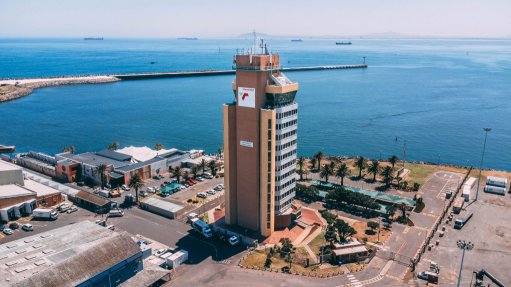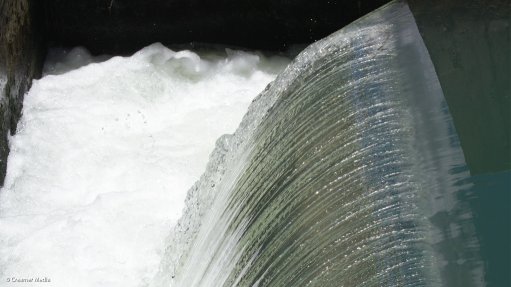Reflections on global conventions in a postliberal order
I was in Sharm El Sheikh, Egypt, in November at a gathering of the Convention on Biological Diversity (CBD) of the Conference of the Parties (COP). This enclave of holiday resorts is characterised by daily jostling by tourists mostly from Kiev. At least four flights a day come out of the ‘Siberian’ cold and the passengers are mostly melancholic Eastern Europeans looking for a reprieve.
In the midst of all this bustle, the world was busy trying to save us from more biodiversity loss.
A recent WWF Living Planet Report shows that, in the past 50 years, there has been a 60% decline in the population of vertebrate species. There are other disturbing findings in the report that need no repeating here to demonstrate the somewhat toothless nature of the CBD.
I had not attended a CBD meeting for years. The last time I was involved in a CBD meeting was between 1994 and 1997, when I had the privilege of being part of a government negotiating team.
While we sat in the COP meetings, news of Jair Bolsonaro winning the Brazilian election rocked the sensibilities of the COP attendees. Brazil has already signalled that it will pull out as the host of the 2019 climate talks.
Bolsonaro has no interest in climate change and wants to increase the exploitation of resources in the Amazon, one of the world’s largest natural carbon capture and storage reserves. Bolsonaro’s view of the world has been emboldened by other perturbing historical precedents: for the first time, the Association of South-East Asian Nations and Group of 20, or G20, meetings will not issue a joint communiqué.
What hope do multilateral environmental agreements (MEAs) have, given these developments.
The CBD is up for review and the current framework agreement comes to an end in 2020. Consequently, the COP meeting sought to focus on a new post-2020 framework.
Many of these conventions are an outcrop of the 1991 Rio Convention. It is important to bear this in mind when we think of the possible outcomes from the conventions because we are entering a new era and many observers are reaching consensus that the liberal order has neither gone nor been displaced, but has become significantly weaker.
Liberal institutionalism is predicated on the idea that countries that join such a global institutional network will enjoy stability and, in so doing, also protect their self- interest. This is a much preferred system than having no order and where the rules of the game are unclear.
Globalism could, by default, be displaced by regionalism crafted around a specific economic power – in this case, China in Asia and the European Union for European States.
The rise of Donald Trump and populist politics in Europe is certainly making consensus more difficult, further weakening the hegemonic grip – in terms of ideas, institutions and economy – that liberalism has enjoyed for a long time.
The US and other Western powers benefited greatly from the collapse of the Soviet Union as liberalism has gained significant traction and hegemony around the world. If it was not ideology that shifted the orientation of countries, then carrots and sticks certainly did so – in the form of trade agreements, aid and foreign direct investment.
At about the time of the Rio Summit, Francis Fukuyama predicted that liberal values would blanket the entire canvas of human geography. His only worry was that people would live so well that they would suffer from boredom.
Well, he has been proven wrong. The current shift in global geopolitics is making the world an interesting and curious place.
Fukuyama’s truimphalism lasted about 25 years. Recently, he penned a new tome suggesting that liberalism is failing and that identity politics is beginning to shape the new world order. This is a reference to the rise of populism and hypernationalism.
Perhaps Fukuyama is, these days, closer to Samuel Huntington’s Clash of Civilizations or, for that matter, Pankaj Mishra’s Age of Anger than he was ever before. Other versions of interpreting shifts in the new world order come from thinkers of geopolitics such as John Mearsheimer, who expounds his views in his recent book, The Great Delusion: Liberal Dreams and International Realities.
Mearsheimer’s main thesis is that geopolitical rivalry and multipolarity will induce more realist positions and that national self-interest will be pursued more openly. Multipolarity also intensifies spend on national security and global military projection, leaving fewer resources for actions that benefit the global commons.
The US is already leading the charge through Trump’s America First doctrine. If anything, the Trump doctrine is giving cover to more strident Russia Eurasianism and the thinking of China’s Xi Jinping – with its emphasis on creating a China-orientated century and world.
A stable international political order is vital for efficient and frictionless collective environmental action. This point is quite obvious, as such an order tames John Locke’s dire spectre and premonition that the world without a stable order is “nasty and brutish”.
Being at these conventions makes you feel as if you are sleep-walking through a time warp – where neither the present nor the future state of affairs is visible.
Tectonic shifts in geopolitics will most likely influence the future of MEAs as they are already doing to other international agreements – from nuclear treaties to trade policies.
The Paris Agreement is touted as a major achievement but, in reality, it is much weaker than the previous framework, and the recent global emissions gap study shows that voluntary nationally determined contributions are way off the levels of effort required to bring emissions down to the 1.5 ºC goal.
Expect the post-2020 CBD framework to be no better. MEAs will have to live with a postliberal order that will have to be more realistic about global collective action as sovereign interests gain greater prominence above global interests.
Article Enquiry
Email Article
Save Article
Feedback
To advertise email advertising@creamermedia.co.za or click here
Announcements
What's On
Subscribe to improve your user experience...
Option 1 (equivalent of R125 a month):
Receive a weekly copy of Creamer Media's Engineering News & Mining Weekly magazine
(print copy for those in South Africa and e-magazine for those outside of South Africa)
Receive daily email newsletters
Access to full search results
Access archive of magazine back copies
Access to Projects in Progress
Access to ONE Research Report of your choice in PDF format
Option 2 (equivalent of R375 a month):
All benefits from Option 1
PLUS
Access to Creamer Media's Research Channel Africa for ALL Research Reports, in PDF format, on various industrial and mining sectors
including Electricity; Water; Energy Transition; Hydrogen; Roads, Rail and Ports; Coal; Gold; Platinum; Battery Metals; etc.
Already a subscriber?
Forgotten your password?
Receive weekly copy of Creamer Media's Engineering News & Mining Weekly magazine (print copy for those in South Africa and e-magazine for those outside of South Africa)
➕
Recieve daily email newsletters
➕
Access to full search results
➕
Access archive of magazine back copies
➕
Access to Projects in Progress
➕
Access to ONE Research Report of your choice in PDF format
RESEARCH CHANNEL AFRICA
R4500 (equivalent of R375 a month)
SUBSCRIBEAll benefits from Option 1
➕
Access to Creamer Media's Research Channel Africa for ALL Research Reports on various industrial and mining sectors, in PDF format, including on:
Electricity
➕
Water
➕
Energy Transition
➕
Hydrogen
➕
Roads, Rail and Ports
➕
Coal
➕
Gold
➕
Platinum
➕
Battery Metals
➕
etc.
Receive all benefits from Option 1 or Option 2 delivered to numerous people at your company
➕
Multiple User names and Passwords for simultaneous log-ins
➕
Intranet integration access to all in your organisation

















